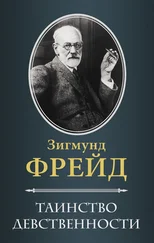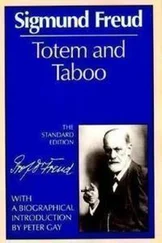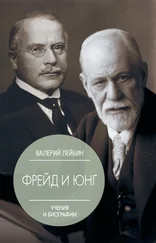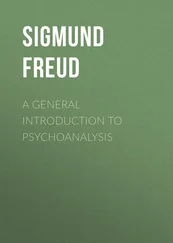So much for experience. It shows us that in renouncing direct suggestion we have given up nothing that is not replaceable. Now let us add a few further considerations. The practice of hypnotic therapy demands only a slight amount of work of the patient as well as of the physician. This therapy fits in perfectly with the estimation of neuroses to which the majority of physicians subscribe. The physician says to the neurotic, "There is nothing the matter with you; you are only nervous, and so I can blow away all your difficulties with a few words in a few minutes." But it is contrary to our dynamic conceptions that we should be able to move a great weight by an inconsiderable force, by attacking it directly and without the aid of appropriate preparations. So far as conditions are comparable, experience shows us that this performance does not succeed with the neurotic. But I know this argument is not unassailable; there are also "redeeming features."
In the light of the knowledge we have gained from psychoanalysis we can describe the difference between hypnotic and psychoanalytic suggestion as follows: Hypnotic therapy seeks to hide something in psychic life, and to gloss it over; analytic therapy seeks to lay it bare and to remove it. The first method works cosmetically, the other surgically. The first uses suggestion in order to prevent the appearance of the symptoms, it strengthens suppression, but leaves unchanged all other processes that have led to symptom development. Analytic therapy attacks the illness closer to its sources, namely in the conflicts out of which the symptoms have emerged, it makes use of suggestion to change the solution of these conflicts. Hypnotic therapy leaves the patient inactive and unchanged, and therefore without resistance to every new occasion for disease. Analytic treatment places upon the physician, as well as upon the patient, a difficult responsibility; the inner resistance of the patient must be abolished. The psychic life of the patient is permanently changed by overcoming these resistances, it is lifted upon a higher plane of development and remains protected against new possibilities of disease. The work of overcoming resistance is the fundamental task of the analytic cure. The patient, however, must take it on himself to accomplish this, while the physician, with the aid of suggestion, makes it possible for him to do so. The suggestion works in the nature of an education . We are therefore justified in saying that analytic treatment is a sort of after–education .
I hope I have made it clear to you wherein our technique of using suggestion differs therapeutically from the only use possible in hypnotic therapy. With your knowledge of the relation between suggestion and transference you will readily understand the capriciousness of hypnotic therapy which attracted our attention, and you will see why, on the other hand, analytic suggestion can be relied upon to its limits. In hypnosis we depend on the condition of the patient's capacity for transference, yet we are unable to exert any influence on this capacity. The transference of the subject may be negative, or, as is most frequent, ambivalent; the patient may have protected himself against suggestion by very special adjustments, yet we are unable to learn anything concerning them. In psychoanalysis we work with the transference itself, we do away with the forces opposing it, prepare the instrument with which we are to work. So it becomes possible to derive entirely new uses from the power of suggestion; we are able to control it, the patient does not work himself into any state of mind he pleases, but in so far as we are able to influence him at all, we can guide the suggestion.
Now you will say, regardless of whether we call the driving force of our analysis transference or suggestion, there is still the danger that through our influence on the patient the objective certainty of our discoveries becomes doubtful. That which becomes a benefit to therapy works harm to the investigation. This objection is most often raised against psychoanalysis, and it must be admitted that even if it does not hit the mark, it cannot be waved aside as stupid. But if it were justified, psychoanalysis would be nothing more than an extraordinarily well disguised and especially workable kind of treatment by suggestion, and we may lay little weight upon all its assertions concerning the influences of life, psychic dynamics, and the unconscious. This is in fact the opinion held by our opponents; we are supposed especially to have "balked into" the patients everything that supports the importance of sexual experiences, and often the experiences themselves, after the combinations themselves have grown up in our degenerate imaginations. We can refute these attacks most easily by calling on the evidence of experience rather than by resorting to theory. Anyone who has himself performed a psychoanalysis has been able to convince himself innumerable times that it is impossible thus to suggest anything to the patient. There is no difficulty, of course, in making the patient a disciple of any one theory, and thus causing him to share the possible error of the physician. With respect to this he behaves just like any other person, like a student, but he has influenced only his intelligence, not his disease. The solving of his conflicts and the overcoming of his resistances succeeds only if we have aroused in him representations of such expectations as can agree with reality. What was inapplicable in the assumptions of the physician falls away during the course of the analysis; it must be withdrawn and replaced by something more nearly correct. By employing a careful technique we seek to prevent the occurrence of temporary results arising out of suggestion, yet there is no harm if such temporary results occur, for we are never satisfied with early successes. We do not consider the analysis finished until all the obscurities of the case are cleared up, all amnestic gaps filled out and the occasions which originally called out the suppressions discovered. We see in results that are achieved too quickly a hindrance rather than a furtherance of analytic work and repeatedly we undo these results again by purposely breaking up the transference upon which they rest. Fundamentally it is this feature which distinguishes analytical treatment from the purely suggestive technique and frees analytic results from the suspicion of having been suggested. Under every other suggestive treatment the transference itself is most carefully upheld and the influence left unquestioned; in analytic treatment, however, the transference becomes the subject of treatment and is subject to criticism in whatever form it may appear. At the end of an analytic cure the transference itself must be abolished; therefore the effect of the treatment, whether positive or negative, must be founded not upon suggestion but upon the overcoming of inner resistances, upon the inner change achieved in the patient, which the aid of suggestion has made possible.
Presumably the creation of the separate suggestions is counteracted, in the course of the cure, by our being continually forced to attack resistances which have the ability to change themselves into negative (hostile) transferences. Furthermore, let me call your attention to the fact that a large number of results of analysis, otherwise perhaps subject to the suspicion that they are products of suggestion, can be confirmed from other unquestionable sources. As authoritative witnesses in this case we refer to the testimony of dements and paranoiacs, who are, naturally far removed from any suspicion of suggestive influence. Whatever these patients can tell us about symbolic translations and phantasies which have forced their way into their consciousness agrees faithfully with the results of our investigations upon the unconscious of transference–neurotics, and this gives added weight to the objective correctness of our interpretations which are so often doubted. I believe you will not go wrong if you give your confidence to analysis with reference to these factors.
Читать дальше







